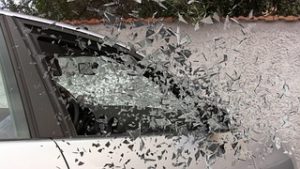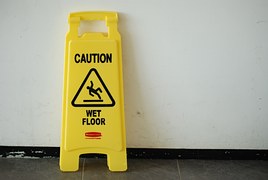Top 10 Social Media Tips for Personal Injury Victims From Personal Injury Lawyer Memphis, TN Counts On!
 Tips for Personal Injury Victims From Patterson Bray
Tips for Personal Injury Victims From Patterson Bray
It seems that everyone is on Facebook or some other type of social media these days. Many people are even addicted to it. If you have a Memphis, TN car wreck or personal injury claim, you should carefully consider the impact your social media posts could have on your case and the ultimate settlement or verdict you receive. As an experienced personal injury lawyer Memphis TN knows and trusts, I can tell you that insurance companies and defense attorneys, as part of their evaluation of you and your case, perform social media account investigation. They will pull up your Facebook, Instagram, Twitter, and other social media accounts to see if they can gather useful information about you, your activities, and the extent of your injuries. We at Patterson Bray put together the following social media tips for personal injury victims.
Personal Injury Social Media Tips
- Archive the content of current accounts. Destruction of potential evidence may create bigger problems than the information itself, so it is important that you do not delete any current content on your social media accounts. Most social media sites include directions for archiving.
- Ideally, stop active use of social media. Consider stopping active use of social media altogether. Use it purely for passively looking at content posted by others, and do not post content of your own.
- At a minimum, be cautious. If you must post information about yourself, think about how posts might be perceived, especially when taken out of context. For example, posting photos of you on a camping trip may leave the false impression that you participate in vigorous physical activity without difficulty or pain. Social media almost never provides a complete and accurate depiction of life since most people tend to post only the most positive or glamorous aspects of their lives. You must assume that anything you post – including status updates, messages, and wall postings – will at some point be seen by the other lawyers, judges, and juries. NEVER post information that may relate to your injury claim, even indirectly.
- Disclose potential problems to a personal injury lawyer Memphis TN counts on. You may have already made potentially problematic posts before reading this. Remember, though, that you should not destroy or delete any information from your social media accounts. However, do let your personal injury lawyer know so that he or she can avoid any surprises down the road.
- Turn on the highest privacy settings. Set your privacy settings to the highest level. Make sure that only friends can see your information, rather than friends of friends, or the general public.
- Be aware of “friends.” Create “friend lists” so that only certain friends can see your photo albums or status updates. Remove any “friends” you do not know well, or at all, and accept friend requests and followers only from people you know and trust.
- Make yourself invisible to searches. As learned by a personal injury lawyer Memphis TN knows and relies on, you can remove yourself from Facebook search results by selecting “only friends” under the “search visibility” option in your profile settings. You can also remove yourself from Google in Memphis TN by unchecking the box for “Public Search Listing” in your Internet Privacy settings. You should make comparable changes to privacy settings on all other social media accounts.
- Preserve all computers, tablets, and cell phones. If you lose or destroy an electronic communication device, the lawyer on the other side could try to portray it as deliberate destruction of evidence. It is better to fight a battle over access to a device than to have a judge instruct a jury that it may legally assume and conclude the contents of the device would have been unfavorable to you.
- Don’t send messages or information about your case. Do not send to anyone, except for your lawyers and their staff, any email, text message, or “private” social media message about your claim, health, or activities. Those communications are not privileged and opposing counsel may be allowed to review any and all such communications. Careless communication can destroy a case.
- Don’t join websites or web chat groups. You do not own the information you post online, and that information is highly searchable. Do not enter any information on dating or insurance sites, post on message boards, participate in or comment on social media “private” groups or blogs, or use chat rooms.
Social Media in Other Types of Cases and Claims
These tips are useful if you are involved in any type of litigation or claim, such as apartment crime, negligent security, insurance claim, contract disputes, business litigation, car or auto accident, or premises liability.
Need a personal injury lawyer Memphis TN trusts?
Call us at Patterson Bray today at (901) 372-5003 or email us here. Let us put our experience as negotiators, litigators, and trial lawyers to work for you.









 Call
Call 
 To recover in a slip and fall case, in addition to the general elements of negligence, you must prove either that: (1) the condition that caused your fall was created by the property owner; or (2) the property owner had actual or constructive notice that the condition existed before your fall. It is absolutely critical that you prove the condition or object that caused the fall.
To recover in a slip and fall case, in addition to the general elements of negligence, you must prove either that: (1) the condition that caused your fall was created by the property owner; or (2) the property owner had actual or constructive notice that the condition existed before your fall. It is absolutely critical that you prove the condition or object that caused the fall.
